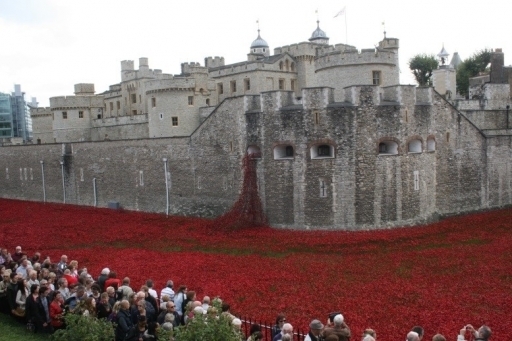The Centenary News Editor writes a personal blog looking back on the first 6 months of the Centenary of the First World War – and looking forward to the key events coming up in 2015.
The Story So Far
Looking back over the last 6 months, the Centenary has gone remarkably smoothly.
The remembrance activities in places like Belgium, France and the UK have been high profile and well regarded.
The August events in Mons and Liege, the poppies at the Tower of London, the BBC programming, the coverage of the Christmas truce. All of these have gone to plan, and, in the main, received positive and widespread media coverage.
What is particularly striking, is how the 2013 debate on whether the Centenary should be a commemoration or a celebration, has just withered away. It just doesn’t seem relevant.
OK, partly because the ‘celebration’ events for the French and British weren’t really until 1918. But mainly, in my view, because in the countries that are marking the anniversary, there seems little appetite to celebrate; but at the same time, because the events of 1914-18 are now so along ago, it’s apparent that few feel an acute sense of grief or sadness.
Instead, in those countries that are organising Centenary events, we seem to be settling into a sensible middle ground – remembering the events with interest, while at the same time paying a dignified respect to those who died.
Moving forwards, 2015 is undoubtedly going to be a busy year for the Centenary, as we recall the extraordinary events of 1915.
There were major Western Front battles, such as Neuve Chappelle, Second Ypres and Loos.
On the Eastern front, there was bitter fighting in Galicia, leading later in the year to Russia’s ‘Great Retreat’.
Italy opened a new Alpine front; Bulgaria entered the war; and, of course, there was Gallipoli.
There were also some notable ‘side events’, which had a major impact at the time – the sinking of the Lusitania, the Zeppelin raids on British towns, and the execution of Edith Cavell.
So, a fascinating year ahead, then, and there’s no real sense of Centenary-fatigue setting in, at least not in those countries that are actively engaged in the Centenary, such as Britain, Belgium, France, Canada, Australia and New Zealand.
However, I do have one concern: that the Centenary commemorations are perpetuating imbalances in the way the world remembers the war.
Despite all the talks and interviews given by Hew Strachan, David Reynolds and others in the run up to the Centenary, many are still, in my view, seeing this as a mainly Western Front conflict (with the occasional side show, such as Gallipoli).
The Eastern Front has hardly been mentioned during the last 6 months. Massive battles, such as Tannenberg, have gone mainly un-noticed. This is obviously largely due to Germany and Russia’s reluctance to get involved in Centenary commemorations. But in other countries, as well, you hear very little about the fighting that happened in places like Poland.
Also, I believe, that there seems to be a reluctance to challenge myths.
In contrast to the the claims made at a number of events last December, for instance, there’s very little evidence that a football match actually took place during the Christmas Truce. And there is growing concern by many that the coverage around the world in April of the Gallipoli anniversary will treat it as a predominantly Anzac affair.
So, as we move into 2015, I think that we are getting a lot right about the way we are remembering the events of 100 years ago.
But I am worried that we are not getting it all right.
We need to remember that this was a global war, not just a Western Front conflict; that millions died on the Eastern Front, as well as on the Western Front; and that, surely, 100 years on, we need to make sure that we stick to facts and not myths.
Nigel Dacre
Centenary News Editor
